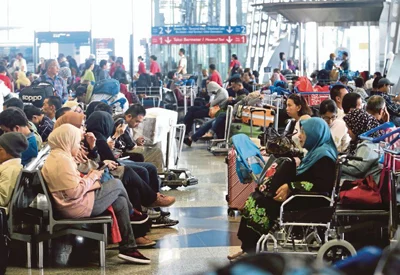Article by Dato’ Steven Wong which appeared in New Straits Times, 3 July 2018
IN many parts of the world, privatisation and its successor, public-private partnerships (PPP), have become dirty words.
Rightly or wrongly, they are associated with opaque sweetheart deals, long concessions to make predatory profits and often with poor services to boot.
The reality is that privatisation can easily become an instrument of political patronage and the evidence in many parts of the world is that it has. Politics and business are complicated enough, but, with privatisation and PPPs, they go to a whole different level.
Businessmen end up in cahoots with politicians and their executives are answerable only to them, not the government or the public. Suffice it for them to throw the public a bone or two while laughing all the way to the bank.
No wonder then that privatisation has become so politically toxic, deeply divisive and unpopular. Early promises of faster, cheaper and more plentiful quality services are suspected to be grossly overstated, while the financial and particularly social costs are grossly understated.
Here in Malaysia, the impact of privatisation is felt from the time one gets out of bed in the morning, to the time one gets back in. Almost everything from air travel and energy to water and waste disposal are privatised; it is simply impossible to avoid.
It’s hard not to get hot under the collar when one sees how well many concessionaires live, unlike most of their customers. One private concern manages an agricultural subsidy for the poorest farmers in the country. Yet, its executives write themselves fat bonuses each year while earning hundreds of millions in profits for their shareholder.
This is hardly an isolated example. Others have private jets, helicopters and luxury yachts, sprawling foreign country estates and huge business investments abroad, fortunes all earned off the backs of the ordinary Malaysian consumer struggling to make ends meet.
It would be understandable therefore if the new government were to just steer clear of privatisation in any shape or form. Revelations of how privatised companies have, for decades, ripped off the hardworking poor and the terminally sick are enough to put anyone off.
And yet, one can ask whether privatisation and PPPs must always lead to winners and losers. Is the theory so at odds with practice as to be totally unredeemable? Are there practical things that can be done to lead to positive sum outcomes?
First, few, if any, privatisation projects here have been awarded on open tender and, thus, none are able to be framed as objective value propositions. Without true competitive bidding, all privatisation and PPPs projects are just crony deals in one way or another, plain and simple.
Second, privatisation has always demanded arms-length relationships and strong and objective governance. This has clearly not been the case here. Politicians are involved from the start and have considerable discretionary power. Their civil servants have always to do their bidding.
Third, as far as delivery is concerned, privatisation has never been aimed at the singular goal of more and better public goods and services at lower cost. Muddying the water with fuzzy social objectives just gives concessionaires excuses for them not being competitive and efficient.
Fourth, even after all the featherbedding, those with the most knowledge and best skills and capabilities may still not be chosen for awards. Corruption is insidious because it is not only an illegal business cost but carries a much larger social cost. It is very difficult to argue this is the case.
Fifth, the service contracts, pertinent laws and regulations are only worth the hard disks they are stored on if administrative and legal institutions cannot be effective and scrupulous. We do not need new powerful and well-paid bodies that claim to administer privatisation. We just need plain vanilla ones which can discharge their responsibilities.
In short, privatisation is a means to achieving the public interest. In Malaysia’s current predicament, it can help tremendously to reduce government debt, stimulate investment, productivity and economic growth and radically transform the delivery of public goods and services.
None of this can be achieved, however, with the political discretion and interference that have dogged the policy for last 30 years. The involvement of many concerns has been more hindrance than help and the cost to the public purse has risen rather than declined.
There is an opportunity to put an end to all of this and to start, at long last, making privatisation work for all.
The writer is deputy chief executive Institute of Strategic and International Studies (ISIS) Malaysia





